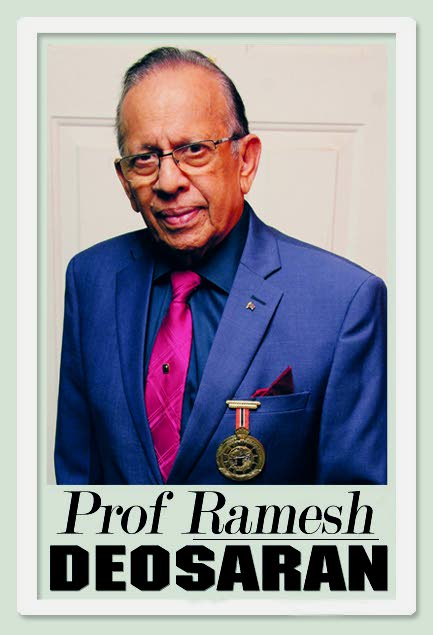SEA journey to uncertainty

The educational system of TT must endeavour to develop a spiritually, morally, physically, intellectually and emotionally sound individual. (National Task Force on Education, 1993-2003).
The implications of the SEA go far beyond the exam. It is a challenging human resource conundrum from which there is no easy escape. What to replace it with? Sure, the SEA is only a “beginning,” but it leads to much more. All caring parents of the 18,889 children who wrote SEA last week wish their children should get enough high marks to enter the secondary school of their first choice.
Now, not all denominational (government assisted) schools are “prestige” (high-performing). Less than 4,000 of those writing SEA get their first choice. There is severe competition, leaving loose several educational controversies. (Note: denominational boards retain a 20 per cent intake via the Concordat). The remaining bulk enter some denominational schools, government secondary schools, Servol, private schools, etc. The Ministry of Education should publish these distributions to help guide policy and public understanding).
Before the SEA, parents prayed. Children too. After the exam, many children got flowers and helium-filled balloons. Some parents promised to take their stressed-out children to Tobago, Barbados, Guyana, Disneyland, etc, for happy relief. All these have become high-level post-SEA gifts. However, it is from here – great expectations – that the joy or tears will flow. Now that emotions are cooled, the unfortunate reality is that there will be joy for some, tears for others with the SEA results. And we know why. Not only that but the same complaints against the SEA and government will noisily arise.
We can call it just a “placement” exam, we can tell the dejected child the SEA result is “no big thing” there are “other opportunities,” the fact remains it is an academic competition. Given the criteria, it is proudly called a meritocracy. Many politicians, parents, principals and mass media lavishly celebrate the winners, then ask that it be abolished.
Now, suppose all 18,899 students get above 95 per cent? Even if we squeeze in 4,000 into their first choice, will it not be difficult to justify rejecting the first choice of a 95 per cent scorer? Even modifying this proposition to 80-90 per cent, it still means that a lot of “bright” 12-year-olds who studied “night and day” will end up frustrated, even depressed. Everybody cannot be equal in this. How far can we use affirmative action, quotas, modified criteria, etc, to close the gap? School-based assessment? Changed curriculum? Zoning? After all, there is competition for places at the university too. And even after that.
Education Minster Dr Nyan Gadsby-Dolly, noting there is “no consensus over the SEA,” said there is now a note before Cabinet calling for a “review” of the SEA. To what extent will that “review” help create equity without losing present successes? SEA adjustments will therefore face revived issues of “equality of opportunity,” constitutional freedom of religion and parental choice.
That is why in my 2016 book, Inequality, Crime and Education: Removing the Masks, I used Justice Sebastian Ventour’s 2009 ruling on the Concordat and a controversial case (Kamla Jagessar vs AG and the Teaching Service Commission) to help clarify the troubling contestation between equity and constitutional freedoms.
Being inspired by the many who became highly professional and skilled without going to a “prestige school,” I questioned the social and psychological flaws in a rugged meritocracy. In that 2016 book, I further discussed the contestation between a humanitarian social justice approach and a purely competitive meritocracy. Of course, meritocracy, fueled by doctrines of capitalism and “hard work,” will more likely win public support.
Gadsby-Dolly was on track when she advised SEA students: “This is not the end – thus is the start of your new journey into secondary school. Just go out there and do your best.” However, many will face elements of culture shock when they first enter secondary school. From the cosy comforts of their primary school, they would have to quickly learn to make new friends, relate to new teachers and the big, unfriendly institution.
Have they been nurtured for such eventuality? They should be. Many “bright” ones have surrendered, failing the culture shock, even “hating” school. And for those who bravely continue, will they realise their certificate is not enough. Will they need “social contact” to “get through”?
Their real journey now start into our uncertain world.

Comments
"SEA journey to uncertainty"